Coconut
Sub-Topics:
Recent Insights
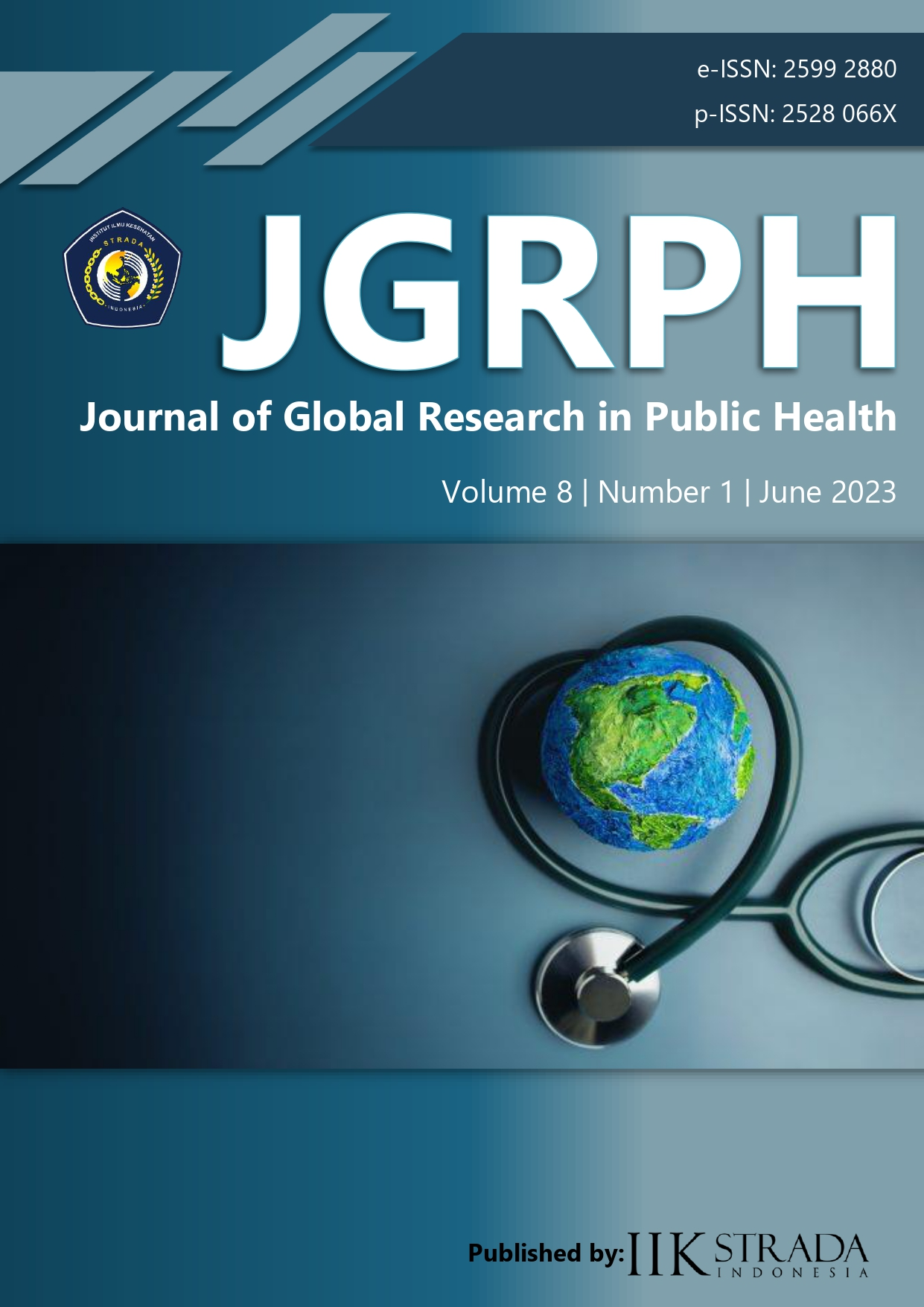 Young coconut water has been found to be more effective than carrot juice in reducing the severity of dysmenorrhea in teenage girls.
Young coconut water has been found to be more effective than carrot juice in reducing the severity of dysmenorrhea in teenage girls.

Carrot Carrot Juice Coconut
Related Topics
Research Articles
Published research studies are articles that present the findings of original research that has undergone a peer-review process and has been made publicly available in scholarly journals, books or other media.
How to submit an article:
- Registered users can submit any published journal article that has a unique DOI (Digital Object Identifier) name or link to Research Hub.
- For example, you can paste the full DOI link:
https://doi.org/10.1109/5.771073or just the DOI name:10.1109/5.771073into the field above and click submit. - The person who is first to submit a valid article to Research Hub will forever be credited for it, and every article submission earns you +6 Research Points.
Evaluation of possible neuroprotective effects of virgin coconut oil on aluminum‐induced neurotoxicity in an in vitro Alzheimer's disease model
2023 Nov 21 Journal of Applied Toxicology Demirel G, Sanajou S, Yirün A, Çakir DA, Berkkan A, Baydar T, et al.
Experimental Study Coconut Oil Alzheimer's DiseaseVirgin coconut oil shows potential therapeutic promise against Alzheimer's disease by reducing key markers and enhancing neurotransmitter parameters.

Single-Blind Randomized Controlled Trial: Comparative Efficacy of Dark Chocolate, Coconut Water, and Ibuprofen in Managing Primary Dysmenorrhea
2023 Aug 21 International Journal of Environmental Research and Public Health Nuha K, Rusmil K, Ganiem AR, Permadi W, Diah Herawati DM
Randomised Controlled Trial Period Pain Coconut Water IbuprofenDark chocolate, with its high cocoa content, may possess pain-relieving properties comparable to Ibuprofen.

Effectiveness of Young Coconut Water And carrots Juice Against the Scale of Dysmenorrhea on The Teenage Princess
2023 Jun 28 Journal of Global Research in Public Health Candra Wahyuni
Cohort Study Clinical Study Coconut Carrot Coconut Water Carrot JuiceYoung coconut water has been found to be more effective than carrot juice in reducing the severity of dysmenorrhea in teenage girls.

The Diuretic Effects of Coconut Water by Suppressing Aquaporin and Renin–Angiotensin–Aldosterone System in Saline-Loaded Rats
2022 Jun 23 Frontiers in Nutrition Wei J, Zhao M, Meng K, Xia G, Pan Y, Li C, et al.
Coconut water demonstrated significant acute diuretic effects by increasing urine excretion and promoting the excretion of sodium and chloride ions without affecting calcium concentration and pH. In prolonged diuretic experiments, coconut water increased urine output and electrolyte concentrations (Na+, K+, Cl–), while also suppressing the renin–angiotensin–aldosterone system and reducing aquaporin 1 (AQP1), AQP2, and AQP 3 expression and protein levels. These findings suggest coconut water could serve as a natural diuretic agent.
Experimental Study Animal Study Renin-Angiotensin System Aquaporin Coconut Water Diuresis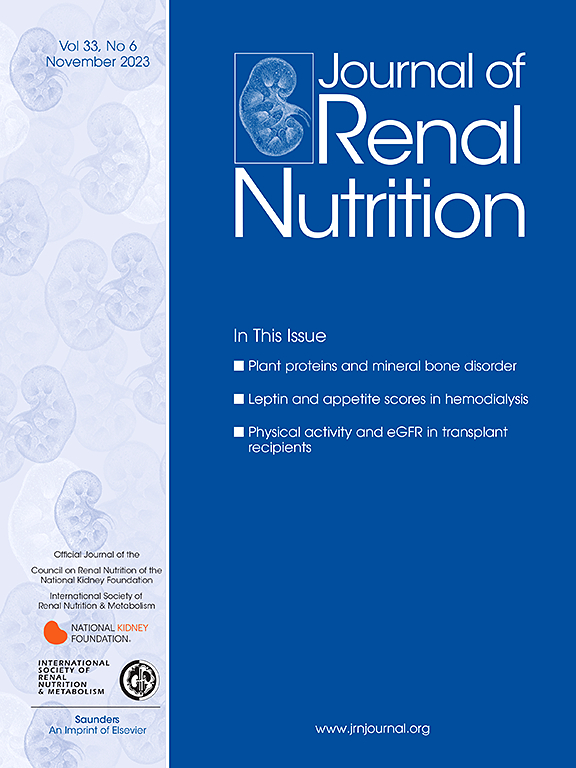
Plant-Based Milk Alternatives and Risk Factors for Kidney Stones and Chronic Kidney Disease
2022 May Journal of Renal Nutrition Borin JF, Knight J, Holmes RP, Joshi S, Goldfarb DS, Loeb S
The study found that oat, macadamia, rice, and soy milk compare favorably with dairy milk in terms of kidney stone risk factors, while almond and cashew milk have more potential stone risk factors. Coconut milk may be a favorable substitute for patients with chronic kidney disease based on low potassium, sodium, and oxalate.
Experimental Study Coconut Milk Nuts Chronic Kidney Disease Cashew Milk Almond Milk Plant MilkResearch Insights
Insights are moderated by the Research Hub team and offer an at-a-glance overview of interesting research findings.
JoAT
Virgin coconut oil shows potential therapeutic promise against Alzheimer's disease by reducing key markers and enhancing neurotransmitter parameters.
2023 Journal of Applied Toxicology Evaluation of possible neuroprotective effects of virgin coconut oil on aluminum‐induced neurotoxicity in an in vitro Alzheimer's disease model Demirel G, Sanajou S, Yirün A, Çakir DA, Berkkan A, Baydar T, et al.
Experimental Study Alzheimer's Disease Coconut Oil
In this study, the SH-SY5Y cell lines were cultured in its regular growth medium which was then differentiated by reducing its fetal bovine serum content and adding retinoic acid. Further, brain-derived neurotrophic factor was added in unison with retinoic acid, completing the differentiation process by the seventh day. The study groups comprised of a control group, groups that received virgin coconut oil, Aluminum, both or neither, an Alzheimer model group, and a group replicating the Alzheimer model exposed to Aluminum and virgin coconut oil. The measurable aspects in this study included specific indicators of Alzheimer's disease like hyperphosphorylated Tau protein, amyloid beta 1-40 peptide, and amyloid precursor protein, oxidative stress parameters, and neurotransmitter-related parameters.
In the results, it was revealed that virgin coconut oil was successful in reducing levels of amyloid beta and hyperphosphorylated Tau protein in the groups. This composition also seemed to decrease oxidative stress levels associated with Alzheimer's disease, delivering improvement in neurotransmitter parameters, which supports the hypothesis that virgin coconut oil can be therapeutic against this progressive neurological disorder.
 Dark chocolate, with its high cocoa content, may possess pain-relieving properties comparable to Ibuprofen.
Dark chocolate, with its high cocoa content, may possess pain-relieving properties comparable to Ibuprofen.

2023 International Journal of Environmental Research and Public Health Single-Blind Randomized Controlled Trial: Comparative Efficacy of Dark Chocolate, Coconut Water, and Ibuprofen in Managing Primary Dysmenorrhea Nuha K, Rusmil K, Ganiem AR, Permadi W, Diah Herawati DM
Randomised Controlled Trial Coconut Water Ibuprofen Period Pain
In this research, a randomized controlled trial with a quantitative design was conducted, involving 45 participants randomly assigned to receive 330 mL of green coconut water, 35 g of 70% dark chocolate, or 400 mg Ibuprofen.
After the intervention, there was a noticeable change in the reported pain intensities. Among the women, 48.9% reported experiencing mild pain, indicating a reduction in pain intensity. Furthermore, 17.8% of the women still reported moderate pain, suggesting some improvement but not a complete alleviation of pain. It is noteworthy that none of the women reported severe pain after the intervention. Additionally, 33.3% of the women reported being pain-free, indicating a significant decrease in pain intensity.
These findings demonstrate the effectiveness of the interventions in reducing pain intensity among women. The results suggest that the treatments, including Ibuprofen, coconut water, and dark chocolate, were successful in providing pain relief, with the majority of women experiencing either mild pain or no pain after the intervention.
 Young coconut water has been found to be more effective than carrot juice in reducing the severity of dysmenorrhea in teenage girls.
Young coconut water has been found to be more effective than carrot juice in reducing the severity of dysmenorrhea in teenage girls.

2023 Journal of Global Research in Public Health Effectiveness of Young Coconut Water And carrots Juice Against the Scale of Dysmenorrhea on The Teenage Princess Candra Wahyuni
Cohort Study Carrot Carrot Juice Coconut Water
In this experimental study, research was conducted using a pre-experimental research design with a two group comparison pre-test and post-test. The research population was compiled of teenage girls from a school in the City of Kediri. The investigators selected a sample of 32 respondents using purposive sampling methods, and utilized observation sheets and pain scale measurements from the Femoralis Rectus Sheath as their primary data collection tools.
The results of the study highlighted a significant difference in the effectiveness of the two tested interventions, young coconut water and carrot juice, for the alleviation of dysmenorrhea symptoms. In this comparison, it was found that young coconut water showed higher effectiveness in reducing the pain severity in teenage girls than carrot juice.
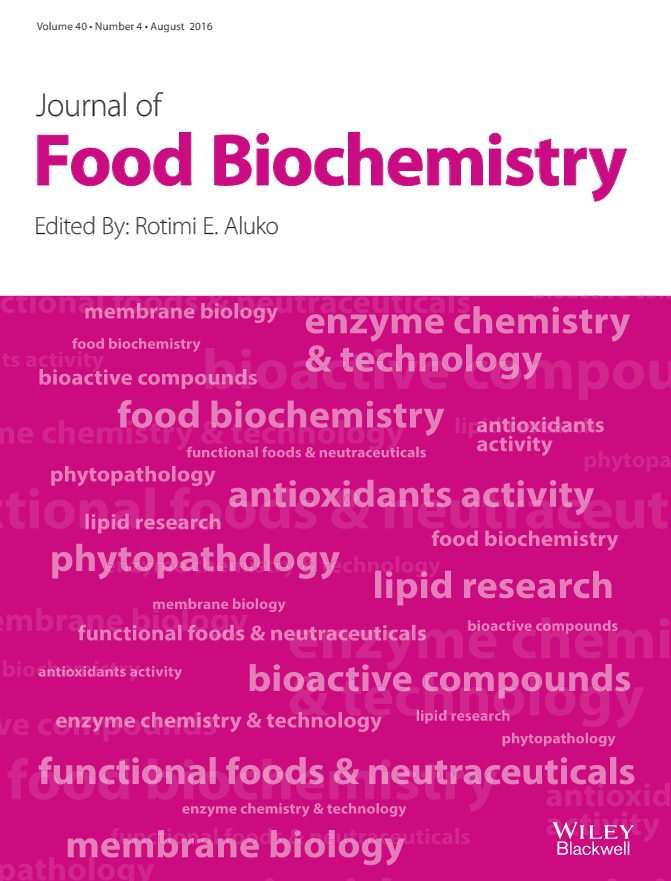 Coconut water and coconut milk ameliorate the negative impacts of heat stress on gastrointestinal health by reducing oxidative stress and suppressing inflammatory responses.
Coconut water and coconut milk ameliorate the negative impacts of heat stress on gastrointestinal health by reducing oxidative stress and suppressing inflammatory responses.

2022 Journal of Food Biochemistry Effect of coconut water and milk on heat stress‐induced gastrointestinal tract dysmotility in rats: Role of oxidative stress and inflammatory response Ajeigbe KO, Oladokun OO, Owonikoko MW, Adegoke GA
Experimental Study Coconut Milk Coconut Water Digestive Health
The study enlisted four different temperature exposure groups of rats, namely a control group at 30 degrees Celsius, a heat-stressed group exposed to an ambiance of 40 degrees, a heat-stressed group pre-treated with coconut water, and a heat-stressed group with coconut milk. Measurements such as skin and rectal temperatures, as well as evaluations of gastrointestinal motility factors such as intestinal transit, intestinal fluid accumulation, and colonic motility, were taken before and after a two-hour heat exposure over 14 days.
Noticeable increases in gastrointestinal motility factors were observed amongst the heat-stressed rats. However, the introduction of coconut milk and water appeared to reverse these increases. Furthermore, the elevated cortisol levels and intestinal lipid peroxidation in the heat-stressed rats were significantly reduced with the introduction of both coconut products. Likewise, results showed an increase in antioxidant enzyme activities in the rats that received either coconut water or milk, in contrast to the control group. Similarly, the coconut water and milk were seen to suppress inflammatory cytokines while enhancing others. The study also noted significant improvements in intestinal morphology among heat-stressed rats treated with either coconut product.
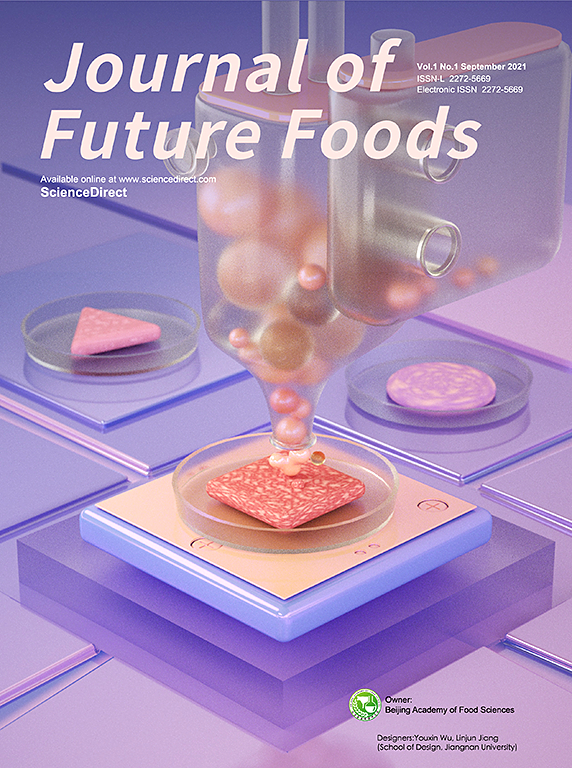 Coconut oil has potential as a nutritional supplement for treating Alzheimer’s disease, due to its medium chain fatty acids and antioxidant properties.
Coconut oil has potential as a nutritional supplement for treating Alzheimer’s disease, due to its medium chain fatty acids and antioxidant properties.

2022 Journal of Future Foods Coconut oil as a therapeutic treatment for alzheimer's disease: a review Sandupama P, Munasinghe D, Jayasinghe M
Review Article Alzheimer's Disease Coconut Oil
The study examined the unique chemical composition of coconut oil that is enriched with medium chain fatty acids, unlike long-chain fatty acids. This distinction matters because these medium chain fatty acids have a specific digestion and metabolism pathway—they bypass the lymphatic system and go straight to the liver through the portal vein. This unique attribute in absorption and metabolism allows these fats to readily form ketone bodies, which are an efficient energy source for brains, especially those experiencing cognitive impairments like Alzheimer's disease.
As for the discussion of the results, the findings showed that medium-chain triglycerides in coconut oil get metabolized and absorbed to mitigate the severity of certain physiological risk factors—elevated LDL levels, hypertension, Type 2 diabetes, obesity, and insulin resistance—all risk factors that contribute to the prevalence and incidence of Alzheimer's disease. Additionally, coconut oil contains many polyphenolic compounds that serve as antioxidants, combating oxidative stress and inflammation—in turn, potentially downregulating the etiology of Alzheimer's disease. The antioxidant capacity, however, can vary depending on the processing conditions used in extraction techniques of coconut oil.
Review Articles
Review articles summarise and critically evaluate the current state of research on a specific topic or field by synthesising multiple primary research studies.

Coconut oil as a therapeutic treatment for alzheimer's disease: a review
2022 Mar Journal of Future Foods Sandupama P, Munasinghe D, Jayasinghe M
Review Article Coconut Oil Alzheimer's DiseaseCoconut oil has potential as a nutritional supplement for treating Alzheimer’s disease, due to its medium chain fatty acids and antioxidant properties.

Health Benefits of Coconut Water
2022 Jan Reference Series in Phytochemistry Rethinam P, Krishnakumar V
Review Article Cardiovascular Disease Osteoporosis Alzheimer's Disease High Blood PressureCoconut water possesses unique compound profiles that imbue it with a broad spectrum of medical properties, incorporating aspects of nutrition, pharmacology, and disease prevention.

Dietary prospects of coconut oil for the prevention and treatment of Alzheimer's disease (AD): A review of recent evidences
2021 Jun Trends in Food Science & Technology Ramesh SV, Krishnan V, Praveen S, Hebbar KB
Review Article Brain Health Alzheimer's Disease Coconut OilCoconut oil has potential therapeutic value in treating Alzheimer's disease by suppressing neuro-inflammation, reversing neurodegeneration, and inhibiting secretion of harmful peptides.
Effects of coconut oil on Alzheimer disease
2021 May International Journal of ADVANCED AND APPLIED SCIENCES Al-Matrafi TA,
The study suggests that coconut oil, particularly its MCTs, may be a natural and cost-effective treatment for AD by enhancing mitochondrial function, oxidation-reduction, and preventing amyloid-beta peptide aggregation. It also highlights potential benefits for other conditions like obesity, dyslipidemia, hypertension, chronic venous disease, and type II diabetes.
Review Article MCTs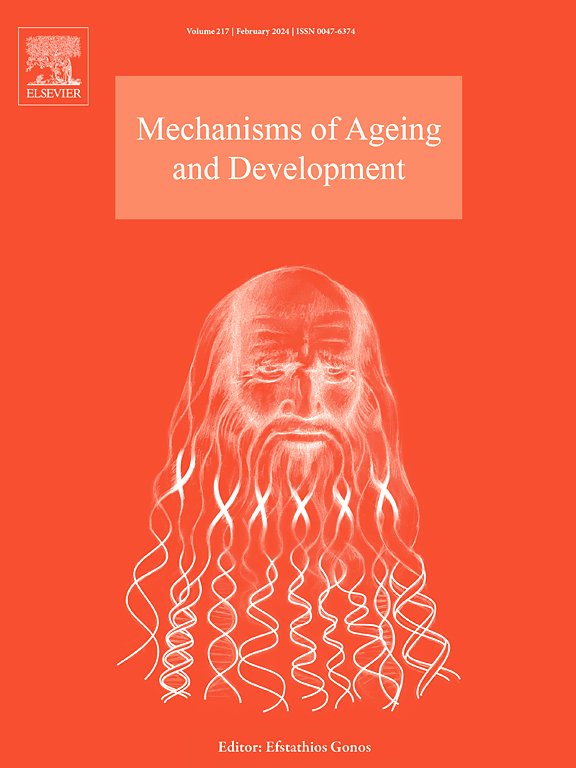
Potential of coconut oil and medium chain triglycerides in the prevention and treatment of Alzheimer’s disease
2020 Mar Mechanisms of Ageing and Development Chatterjee P, Fernando M, Fernando B, Dias CB, Shah T, Silva R, et al.
The review discusses how the metabolism of CO and MCFA might compensate for glucose hypometabolism observed in the AD brain. It highlights the neuroprotective properties of CO, including its antioxidant effects attributed to polyphenolic content. The evidence regarding the impact of CO on cognition, amyloid-β pathogenicity, inflammation, and oxidative stress in AD is presented. Additionally, the review addresses the influence of CO/MCFA on other chronic disorders that are risk factors for AD and identifies gaps in the existing literature on the potential use of CO/MCFA as a treatment for AD.
Review Article Alzheimer's Disease Coconut OilClinical Trials
Clinical trials are research studies that involve people and are conducted to evaluate the safety and efficacy of new treatments or interventions, such as drugs, medical devices, or behavioural therapies.

Single-Blind Randomized Controlled Trial: Comparative Efficacy of Dark Chocolate, Coconut Water, and Ibuprofen in Managing Primary Dysmenorrhea
2023 Aug 21 International Journal of Environmental Research and Public Health Nuha K, Rusmil K, Ganiem AR, Permadi W, Diah Herawati DM
Randomised Controlled Trial Period Pain Coconut Water IbuprofenDark chocolate, with its high cocoa content, may possess pain-relieving properties comparable to Ibuprofen.

Non-pharmacological Randomised Control Trial: Green Coconut (Cocos nucifera L.) Water to Reduce Dysmenorrhea Pain
2020 Feb 29 Jurnal Kedokteran Brawijaya Nugroho FA, Putri OM, Sariati Y
Randomised Controlled Trial Period Pain Coconut WaterConsuming 330 ml of green coconut water can be an effective non-pharmacological approach to alleviate dysmenorrhea pain.
Study Protocols
Published study protocols are detailed plans that outline the objectives, methodology, statistical analyses, and organisation of a research study that have been made publicly available for others to review and use as a reference.
Presentation Slides

Experimental Study
Virgin coconut oil shows potential therapeutic promise against Alzheimer's disease by reducing key markers and enhancing neurotransmitter parameters.
Demirel G, Sanajou S, Yirün A, Çakir DA, Berkkan A, Baydar T, Erkekoğlu P

Randomised Controlled Trial
Dark chocolate, with its high cocoa content, may possess pain-relieving properties comparable to Ibuprofen.
Nuha K, Rusmil K, Ganiem AR, Permadi W, Diah Herawati DM

Cohort Study
Young coconut water has been found to be more effective than carrot juice in reducing the severity of dysmenorrhea in teenage girls.
Candra Wahyuni

Experimental Study
Coconut water and coconut milk ameliorate the negative impacts of heat stress on gastrointestinal health by reducing oxidative stress and suppressing inflammatory responses.
Ajeigbe KO, Oladokun OO, Owonikoko MW, Adegoke GA

Review Article
Coconut oil has potential as a nutritional supplement for treating Alzheimer’s disease, due to its medium chain fatty acids and antioxidant properties.
Sandupama P, Munasinghe D, Jayasinghe M

Review Article
Coconut water possesses unique compound profiles that imbue it with a broad spectrum of medical properties, incorporating aspects of nutrition, pharmacology, and disease prevention.
Rethinam P, Krishnakumar V

Cohort Study
Green coconut water was found to significantly reduce dysmenorrhea pain among adolescent girls.
Indrayani T, Fikria SH, Dinengsih S

Review Article
Coconut oil has potential therapeutic value in treating Alzheimer's disease by suppressing neuro-inflammation, reversing neurodegeneration, and inhibiting secretion of harmful peptides.
Ramesh SV, Krishnan V, Praveen S, Hebbar KB

Randomised Controlled Trial
Consuming 330 ml of green coconut water can be an effective non-pharmacological approach to alleviate dysmenorrhea pain.
Nugroho FA, Putri OM, Sariati Y
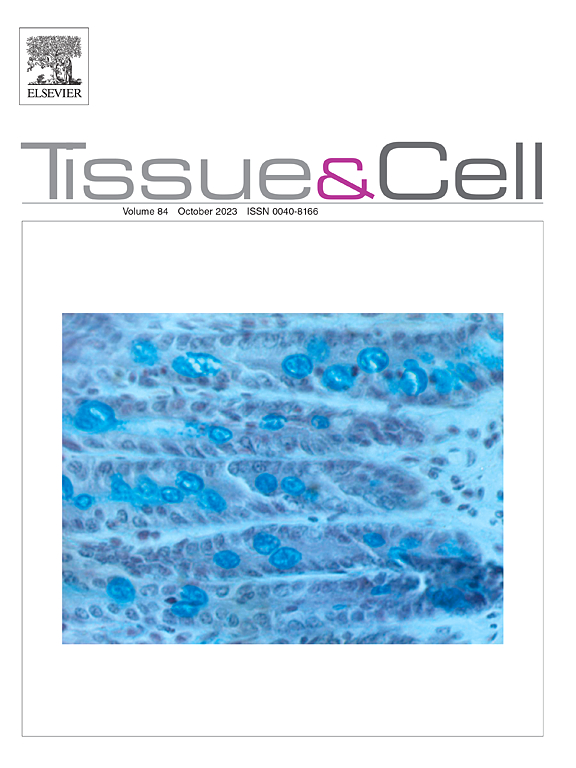
Experimental Study
Coconut water and milk demonstrate protective effects against ulceration, reducing inflammation, promoting cell proliferation and supporting mucosal homeostasis.
Ajeigbe KO, Owonikoko WM, Egbe V, Iquere I, Adeleye G
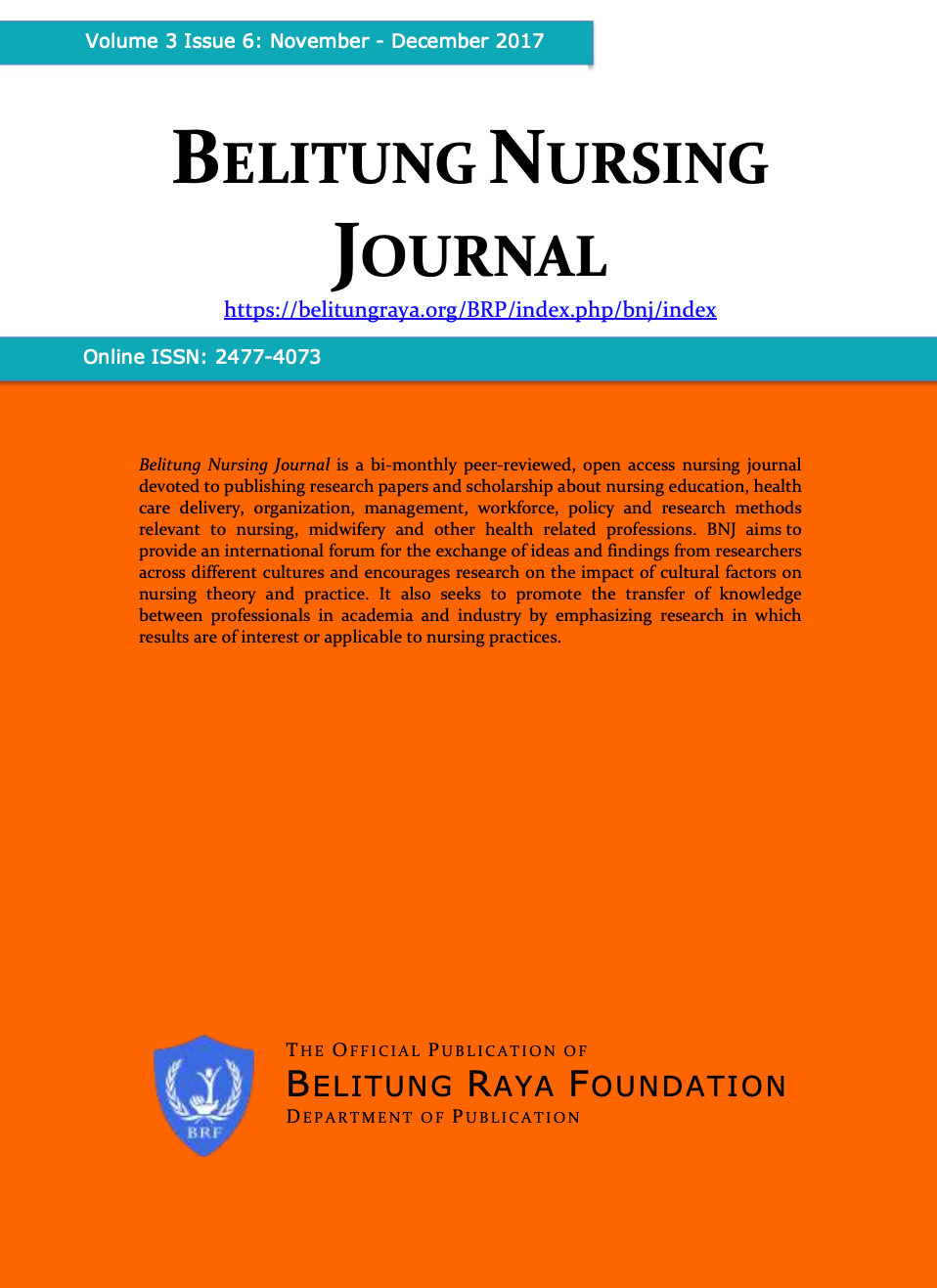
Cohort Study
Combining effleurage massage and green coconut water is more effective than massage alone in reducing menstrual pain and anxiety, and boosting ß-endorphin levels in teenage girls.
Ulya FH, Suwandono A, Ariyanti I, Suwondo A, Kumorowulan S, Pujiastuti SE
Executive Summary
Write an executive summary in the form of a blog article on the topic of "Research into Chinese medicine treatment for Coconut" summarising the research below and using language that can be easily understood by patients and avoiding medical jargon using a professional and caring tone of voice.
Write an executive summary in the form of a blog article on the topic of "Researched Chinese medicine treatments for Coconut" summarising the research below in an objective and easy to understand way, and using language that can be easily understood by patients. Group the article into Chinese medicine treatments first, followed by nutrition and other treatments. Avoid using medical jargon and use a professional and caring tone of voice.
Write me a concise but easy to understand executive summary on the topic of "Chinese medicine treatments for Coconut" based on the following research that I will give you. Your summary should be 2 paragraphs long in Australian English spelling and include references to the studies.
A Experimental Study published in 2023 in the journal Journal of Applied Toxicology found that Virgin coconut oil shows potential therapeutic promise against Alzheimer's disease by reducing key markers and enhancing neurotransmitter parameters. In this study, the SH-SY5Y cell lines were cultured in its regular growth medium which was then differentiated by reducing its fetal bovine serum content and adding retinoic acid. Further, brain-derived neurotrophic factor was added in unison with retinoic acid, completing the differentiation process by the seventh day. The study groups comprised of a control group, groups that received virgin coconut oil, Aluminum, both or neither, an Alzheimer model group, and a group replicating the Alzheimer model exposed to Aluminum and virgin coconut oil. The measurable aspects in this study included specific indicators of Alzheimer's disease like hyperphosphorylated Tau protein, amyloid beta 1-40 peptide, and amyloid precursor protein, oxidative stress parameters, and neurotransmitter-related parameters. In the results, it was revealed that virgin coconut oil was successful in reducing levels of amyloid beta and hyperphosphorylated Tau protein in the groups. This composition also seemed to decrease oxidative stress levels associated with Alzheimer's disease, delivering improvement in neurotransmitter parameters, which supports the hypothesis that virgin coconut oil can be therapeutic against this progressive neurological disorder.
A Randomised Controlled Trial published in 2023 in the journal International Journal of Environmental Research and Public Health found that Dark chocolate, with its high cocoa content, may possess pain-relieving properties comparable to Ibuprofen. In this research, a randomized controlled trial with a quantitative design was conducted, involving 45 participants randomly assigned to receive 330 mL of green coconut water, 35 g of 70% dark chocolate, or 400 mg Ibuprofen. After the intervention, there was a noticeable change in the reported pain intensities. Among the women, 48.9% reported experiencing mild pain, indicating a reduction in pain intensity. Furthermore, 17.8% of the women still reported moderate pain, suggesting some improvement but not a complete alleviation of pain. It is noteworthy that none of the women reported severe pain after the intervention. Additionally, 33.3% of the women reported being pain-free, indicating a significant decrease in pain intensity. These findings demonstrate the effectiveness of the interventions in reducing pain intensity among women. The results suggest that the treatments, including Ibuprofen, coconut water, and dark chocolate, were successful in providing pain relief, with the majority of women experiencing either mild pain or no pain after the intervention.
A Cohort Study published in 2023 in the journal Journal of Global Research in Public Health found that Young coconut water has been found to be more effective than carrot juice in reducing the severity of dysmenorrhea in teenage girls. In this experimental study, research was conducted using a pre-experimental research design with a two group comparison pre-test and post-test. The research population was compiled of teenage girls from a school in the City of Kediri. The investigators selected a sample of 32 respondents using purposive sampling methods, and utilized observation sheets and pain scale measurements from the Femoralis Rectus Sheath as their primary data collection tools. The results of the study highlighted a significant difference in the effectiveness of the two tested interventions, young coconut water and carrot juice, for the alleviation of dysmenorrhea symptoms. In this comparison, it was found that young coconut water showed higher effectiveness in reducing the pain severity in teenage girls than carrot juice.
A Experimental Study published in 2022 in the journal Journal of Food Biochemistry found that Coconut water and coconut milk ameliorate the negative impacts of heat stress on gastrointestinal health by reducing oxidative stress and suppressing inflammatory responses. The study enlisted four different temperature exposure groups of rats, namely a control group at 30 degrees Celsius, a heat-stressed group exposed to an ambiance of 40 degrees, a heat-stressed group pre-treated with coconut water, and a heat-stressed group with coconut milk. Measurements such as skin and rectal temperatures, as well as evaluations of gastrointestinal motility factors such as intestinal transit, intestinal fluid accumulation, and colonic motility, were taken before and after a two-hour heat exposure over 14 days. Noticeable increases in gastrointestinal motility factors were observed amongst the heat-stressed rats. However, the introduction of coconut milk and water appeared to reverse these increases. Furthermore, the elevated cortisol levels and intestinal lipid peroxidation in the heat-stressed rats were significantly reduced with the introduction of both coconut products. Likewise, results showed an increase in antioxidant enzyme activities in the rats that received either coconut water or milk, in contrast to the control group. Similarly, the coconut water and milk were seen to suppress inflammatory cytokines while enhancing others. The study also noted significant improvements in intestinal morphology among heat-stressed rats treated with either coconut product.
A Review Article published in 2022 in the journal Journal of Future Foods found that Coconut oil has potential as a nutritional supplement for treating Alzheimer’s disease, due to its medium chain fatty acids and antioxidant properties. The study examined the unique chemical composition of coconut oil that is enriched with medium chain fatty acids, unlike long-chain fatty acids. This distinction matters because these medium chain fatty acids have a specific digestion and metabolism pathway—they bypass the lymphatic system and go straight to the liver through the portal vein. This unique attribute in absorption and metabolism allows these fats to readily form ketone bodies, which are an efficient energy source for brains, especially those experiencing cognitive impairments like Alzheimer's disease. As for the discussion of the results, the findings showed that medium-chain triglycerides in coconut oil get metabolized and absorbed to mitigate the severity of certain physiological risk factors—elevated LDL levels, hypertension, Type 2 diabetes, obesity, and insulin resistance—all risk factors that contribute to the prevalence and incidence of Alzheimer's disease. Additionally, coconut oil contains many polyphenolic compounds that serve as antioxidants, combating oxidative stress and inflammation—in turn, potentially downregulating the etiology of Alzheimer's disease. The antioxidant capacity, however, can vary depending on the processing conditions used in extraction techniques of coconut oil.
A Review Article published in 2022 in the journal Reference Series in Phytochemistry found that Coconut water possesses unique compound profiles that imbue it with a broad spectrum of medical properties, incorporating aspects of nutrition, pharmacology, and disease prevention. The study utilized comprehensive analysis to assess the chemical profile of coconut water, identifying a range of components including phytohormones, enzymes, antioxidant compounds, vitamins, minerals, and phenolic compounds. These components are known to contribute to the water's biological activity and pharmacological effects, thereby enabling a raft of medicinal properties inherent to coconut water. The water was found to feature anti-microbial, anti-bacterial, anti-inflammatory, anti-hypertensive, rejuvenating, hepatoprotective, hypolipidemic, and diuretic properties. An examination of the therapeutic effects of coconut water revealed a significant impact on gastric dysfunction, dysentery, and child malnutrition alongside notable capabilities to manage hypertension. The water was found to promote exercise performance, reduce swelling, dissolve kidney stones, improve kidney function, improve digestion, relieve constipation, reduce the risk of heart disease, lower high blood pressure, and improve cholesterol levels. Consumption of tender coconut water was specifically found to reduce the risk of heart disease, help prevent Alzheimer’s disease pathologies and prevent osteoporosis in experimental animals. The unique nutritional profile of coconut water was also found to provide it with the capacity to balance body chemistry and fight cancer.
A Cohort Study published in 2021 in the journal STRADA Jurnal Ilmiah Kesehatan found that Green coconut water was found to significantly reduce dysmenorrhea pain among adolescent girls. The researchers used a Quasi Experiment methodology for this study, involving a pretest-posttest design with an added control group. The research team analysed the data with the Paired T-Test, which measured the difference in dysmenorrhea pain scales within a single group, both before and after the administration of green coconut water. An additional test, the Independent T-Test, was utilised to observe and evaluate the difference between groups. After applying green coconut water, the results revealed a noticeable difference in the dysmenorrhea pain scale among the tested adolescent girls. Green coconut water showed a clear impact in reducing the dysmenorrhea pain, solidifying its potential to serve as a traditional treatment alternative for adolescent girls suffering from dysmenorrhea in the Berekah village of the Sukabumi district.
A Review Article published in 2021 in the journal Trends in Food Science & Technology found that Coconut oil has potential therapeutic value in treating Alzheimer's disease by suppressing neuro-inflammation, reversing neurodegeneration, and inhibiting secretion of harmful peptides. The methodology of this study hinges on investigating the impact of coconut oil-derived medium chain fatty acids (MCFAs) on brain glucose metabolism, which is linked to Alzheimer's Disease (AD). These MCFAs rapidly metabolize into ketone bodies, possibly providing alternative energy for cerebral tissue. This research evaluates the recent findings on the role of coconut oil in mitigating AD symptoms, including its dietary effects on reducing neuro-inflammation, reversing neurodegenerative processes, and inhibiting the secretion of amyloid β peptides, which contribute to AD. The results of the investigation reveal a promising correlation between coconut oil and the amelioration of AD symptoms. The effectiveness of coconut oil is believed to be due to its ability in enhancing cell survival pathways, suppressing neuro-inflammation, and reversing neurodegeneration. Coconut oil also proves useful in preventing the secretion of harmful amyloid β peptides, as seen in animal models and human clinical trials. These multi-pronged biochemical effects underline the immense therapeutic potential of coconut oil in treating AD.
A Randomised Controlled Trial published in 2020 in the journal Jurnal Kedokteran Brawijaya found that Consuming 330 ml of green coconut water can be an effective non-pharmacological approach to alleviate dysmenorrhea pain. The study used a non-pharmacological, randomized controlled trial to identify the optimal dosage of green coconut water as a magnesium source for reducing dysmenorrhea pain. A group of 21 participants was evenly divided into three groups. Treatment group 1 received 330 ml of green coconut water, treatment group 2 received 165 ml of green coconut water, and the control group was given 330 ml of mineral water. Each dosage was repeated three times every 4 hours. The study relied on the Visual Analogue Scale questionnaire to assess the severity of pain experienced by the participants both before and after the administration of the assigned drinks. In the results discussion, it was identified that the group that ingested 330 ml of green coconut water experienced the most significant decrease in pain compared to the other two groups. Conversely, treatment group 2 showed only a minor reduction in dysmenorrhea pain. Meanwhile, the control group, which only consumed mineral water, did not display any notable changes in their levels of pain intensity. From these findings, it was concluded that a 330 ml dosage of green coconut water is an effective non-pharmacological treatment alternative for dysmenorrhea pain.
A Experimental Study published in 2017 in the journal Tissue and Cell found that Coconut water and milk demonstrate protective effects against ulceration, reducing inflammation, promoting cell proliferation and supporting mucosal homeostasis. The study was conducted in two phases using 45 male wistar rats divided into 9 groups. The first phase involved treatment of five groups with different substances: normal saline, 95% ethanol, coconut water, coconut milk, and Omeprazole. Ulceration was induced with 95% ethanol except in the saline-control group. The second phase involved four groups: a control group, an ulcer control group receiving acetic acid, a group receiving coconut milk and another receiving Omeprazole. Drug treatments were administered twice daily for 3-6 days post-ulcer induction. Afterwards, blood was collected for haemocytometry and gastric tissues were harvested for histological examinations. In this study, both coconut water and milk, as well as Omeprazole, led to reduced ulcer scores and gastric lesion indices compared to the ulcer control groups. They also resulted in significantly lower white blood cell, neutrophil, and lymphocyte counts compared to the ulcer and overall control groups. Coconut milk, in particular, was associated with a significant reduction in C-reactive protein. The experimental treatments also led to reduced neutrophil infiltration and an increase in mucus cell density. Notably, the coconut milk group showed significantly higher expressions of EGFR and CD31, indicating catalysis of mucosa homeostasis through angiogenesis and mucosal cell proliferation.
A Cohort Study published in 2017 in the journal Belitung Nursing Journal found that Combining effleurage massage and green coconut water is more effective than massage alone in reducing menstrual pain and anxiety, and boosting ß-endorphin levels in teenage girls. This research employed a quasi-experimental design, using pretest-posttest approach, with a control group. A total of 36 participants were recruited through purposive sampling, and divided into three groups: massage therapy, combination therapy (massage and green coconut water), and a control group. Levels of menstrual pain were gauged using the Numeric Rating Scale, while anxiety was measured via the Zung Self rating Anxiety Scale, and ß-endorphin levels were determined through the ELISA test. One-way ANOVA test and repeated ANOVA were applied for a bivariate analysis, while MANCOVA and post hoc ANOVA were utilised for the multivariate analysis. Discussion of the results revealed that the combination therapy of effleurage massage and green coconut water was more successful than massage therapy alone in combating the symptoms of dysmenorrhea. Specifically, the combination therapy was found to offer a superior reduction in pain and anxiety levels, plus a more noticeable increase in ß-endorphin levels. This suggests that these two methods, when combined, can offer significant benefits to women suffering from menstrual pain.
Moderation Tools
Topic
Sign In
Users not signed in are limited to viewing the 5 most recent items of content.